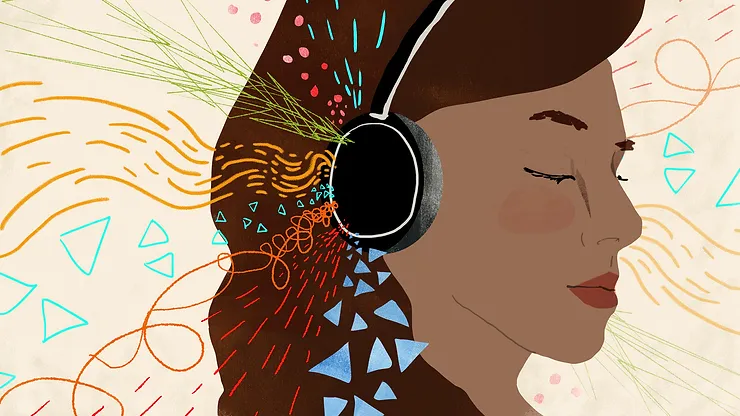Music serves as a global language that cuts through boundaries and cultures to penetrate the depths of the human psyche in the tangled pathways of human emotion and experience. However, its importance goes well beyond merely being a form of entertainment or creative expression. Scientific study on the significant impact of music on mental health has increased recently, illuminating the transformational ability of music to heal, comfort, and uplift the human psyche, demonstrating the enormous benefits of music for mental health, demonstrating its transforming power to reduce anxiety and sadness and provide people the tools they need to manage their emotions.
Music stands out as a potent treatment in a society where the stresses of modern life frequently result in mental health issues. It cuts through social barriers and has a profound effect on human psychology. Recent scientific studies have demonstrated the incredible ability of music to reduce anxiety, fight depression, and provide comfort in the face of difficulties in life.
When interviewing different students at The Columbus School, their responses regarding how music affects their mental health were fairly similar.
“My mental health in not directly affected by the music I listen to, yet my mood can improve when listening to the music I like, directly affecting how calm and unstressed I am,” Maia Gallon, Grade 11 said.
The way that music impacts our mood is a complex and highly individual phenomenon. It’s proof of how significantly music may influence our emotional scenery. Music has the extraordinary capacity to arrange the ups and downs of our emotions, whether it’s the energizing rush of an upbeat, energetic song or the comforting embrace of a calm melody. When asked about it, in a survey, we found that 75% of survey takers of students at TCS feel like beet is more significant than lyrics for the type of mood.
“I think music is a coping mechanism and impacts positively, I find my mood is affected in the short term, it’s just the vibe that the song gives. I instantly have the instinct to sing, which makes me very happy.” were Juanita Velilla’s answers when filling out the survey.
Numerous studies on the effect of music on mental health have been undertaken by psychologists and researchers, and the results point to the possibility that music might have a significant impact on our emotional and psychological health.
“Emotions can be inspired and controlled by music. It is beneficial to use music as a coping mechanism for stress, anxiety, and depression since it can help people express and control their emotions,” Maria Teresa Mejia, Grade 11 counselor said.
It’s crucial to note that everyone’s experience with music’s effects on mental health will be different. Different people have different musical preferences and musical responses, so what works as a therapeutic aid for one person might not have the same impact on another. As a result, psychologists frequently stress the significance of individualized strategies for employing music to promote mental health and adapting therapies to a person’s specific requirements and interests.
“Music therapy is designed to meet the unique requirements and objectives of each patient. For mental health issues, some people may respond well to music therapy, while others may find it less useful,” remarked Mejia.
Music is a tribute to the boundless cleverness and perseverance of the human spirit, from the euphoric crescendos that uplift our spirits to the soft lullabies that offer shelter in times of solitude. It offers a wide variety of methods for increasing mental health and well-being, and its therapeutic potential never ceases to fascinate psychologists, researchers, and people alike. Whether it’s through music therapy, individual playlists, or group performances, the uplifting energies of music infuse every aspect of our lives and deepen our comprehension of both our inner selves and the world around us.
















